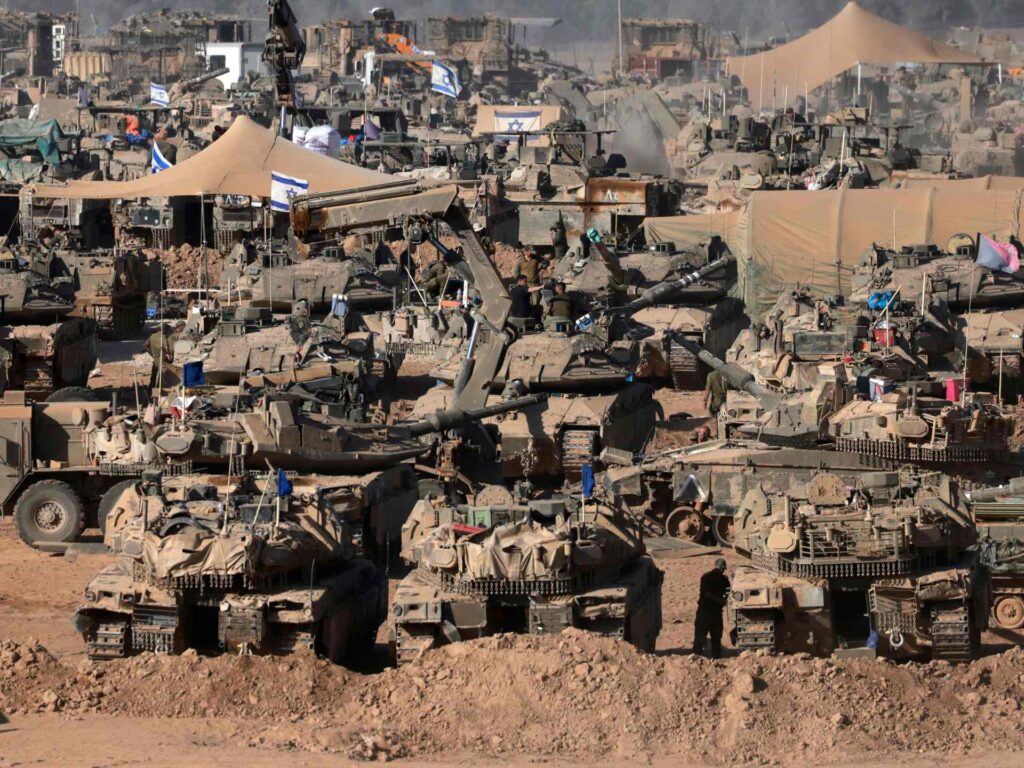The Israeli economic newspaper Calcalist said that the cost of the current war that Israel is waging in the Gaza Strip is greatly exacerbated, as the occupation army updated its forecasts and raised its total estimate of the cost of the war from 130 billion shekels ($36.7 billion) to between 140 and 150 billion shekels (about 39.5 billion shekels). -42.4 billion dollars). She pointed out that these costs do not include the possibility of launching a ground operation in Lebanon or a direct confrontation with Iran, which means that the cost may rise further in the event of an additional escalation.
This large increase represents an additional challenge to the Israeli budget for the year 2025, according to the newspaper, and confirms once again the extent of the difficulty the country faces in maintaining its financial stability under these difficult circumstances.
The newspaper’s report indicates that the original estimates issued 3 months ago, prepared by Brigadier General Gil Pinhas, financial advisor to the Chief of the General Staff, estimated the cost of the war at about 37 billion dollars, but with the continuation of the war and the escalation of tensions in the region, these estimates were updated and may raise them. To more than $42 billion.
Direct expenditures since October 7, according to Calcalist, include about 129 billion shekels ($36.4 billion), including:
- 37 billion shekels ($10.4 billion) is spent on the salaries of reserve soldiers.
- 29 billion shekels ($8.2 billion) on ammunition and weapons.
- 19 billion shekels ($5.4 billion) for aircraft, ships and maintenance work.
- 13 billion shekels ($3.7 billion) on weapons.
- Another NIS 13 billion ($3.7 billion) on logistics.
- 8 billion shekels ($2.3 billion) on communications and intelligence systems.
- 6 billion shekels ($1.7 billion) on infrastructure and civil support.
- 4 billion shekels ($1.1 billion) for treatment, rehabilitation and support for families.
The gap between the Ministries of Defense and Finance
As the cost continues to rise, the gap between the expectations of the Ministry of Defense and the Ministry of Finance regarding the defense budget for the year 2025 is widening. This gap may reach tens of billions of shekels, which puts Finance Minister Bezalel Smotrich in a difficult position, according to the newspaper, as it may be impossible to maintain The budget deficit is at 4%, as was targeted.
Calcalist says that the Ministry of Finance is not fully aware of the accounts of the Ministry of Defense and the Israeli army, and believes that the numbers issued by the army inflate costs by including expenses that are not directly related to the war, such as training and procurement operations, which makes the situation appear more expensive than it is in reality.
The report also confirms that some finance officials believe that there is a need to reevaluate some items of military spending in view of the changes that have occurred in the balance of threats facing Israel, such as reducing the threats of Hamas in Gaza and the impact on the capabilities of the Lebanese Hezbollah.
Although the report reveals the growing gap between the Ministries of Finance and Defense, it also shows that there is a need to adapt to the new reality imposed by the war. The report indicated that Israel is likely to face a difficult economic situation if military expenditures are not controlled.
The Calcalist report indicates that the increasing inflation in war costs poses a serious threat to economic stability in Israel, as failure to control these expenses may lead to a significant rise in public debt, putting the country at risk of facing a “lost decade” of economic growth, as happened. Following the October 1973 War.


